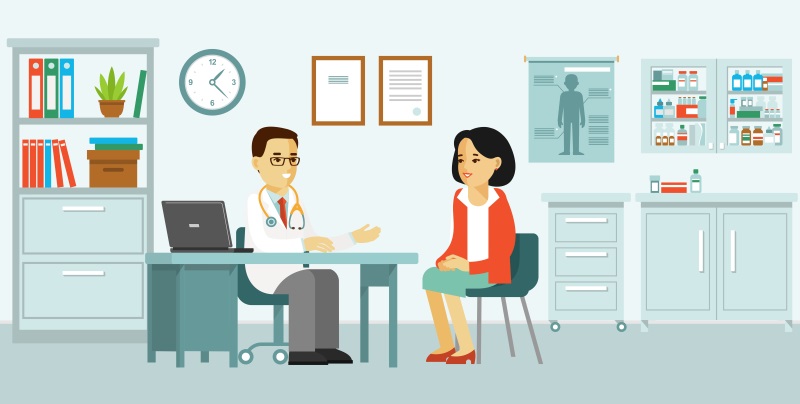The rise of the informed patient
There was a joke doing the rounds a few years ago—it’s probably perennial in medical schools—about the difference between God and surgeons. The answer, of course, is that God doesn’t think he’s a surgeon. But the days of doctors, and indeed, other healthcare practitioners, being expected to know everything are surely long gone.
Instead, with the advent of Google, we have seen the rise of the informed patient.

In some cases, especially on rare but chronic conditions, such patients are often better informed than the doctor they are consulting. After all, they have to live with the condition day in, day out. They may also have made contact with various patient and disease-specific support groups via social media.
Wise is the doctor who understands that they don’t, and can’t, know everything about everything. And sensible is the one who is not afraid to say ‘I don’t know, let’s look it up and see’.
For these patients, and their doctors, healthcare is a genuine partnership. They are working together to explore ways of treating the condition in question, using the vast body of knowledge that’s available on the internet as a resource. And of course, the massive advantage of the internet and fast broadband is that the information is available instantly, during the consultation, for doctor and patient to weigh up together.
And perhaps that’s the key: not all information is created equal.
Because there is a flip side to informed patients, and that is ill-informed patients.
You will almost certainly have encountered patients who walk into your clinic, tell you what’s wrong with them or their child, and demand a particular course of treatment, ‘because I read about it on the internet’. And like all of us, your hackles will probably have risen at being told how to do your job.
It’s sad, but true, that many people have never learned to weigh up the relative merits of two sources of information. An irresponsible news story is given equal weight to multiple high quality clinical trials (witness the MMR and autism story, which still refuses to die, despite no evidence of any link).
But what about when the balance is much harder to establish? Suppose there have been no large scale clinical trials, because the work is at very early stages, or there is little potential for expensive drugs, so that big pharma companies are not interested? If you believe that there is no scientific basis to a claim, then you should, of course, point that out. You could be liable if something goes wrong and you have not done so.
But the evidence may not be available. At that stage, it comes down to a matter of choice. And really, all you can do is help your patients to weigh up the possible consequences of the standard and/or conventional treatment, and whatever alternative they have in mind, and help them to decide which course they are prepared to follow.

It does, once again, come down to thinking of healthcare as a partnership between patient and doctor, which is why the doctor–patient relationship is so crucial.
Medstars Medical Concierge Service
Looking for extra guidance when it comes to your healthcare? Sometimes interpreting medical information and making the best decisions can be daunting and complicated. Our private medical concierge service provides easy access to top UK health experts. We guide our patients with genuine choice and trust, offering a bespoke service for anyone in the world seeking private UK healthcare. Learn more about Medstars Medical Concierge Service. Want to learn more about providing our medical concierge service as an employee benefit? Learn more about Medstars Medical Concierge for Business.
